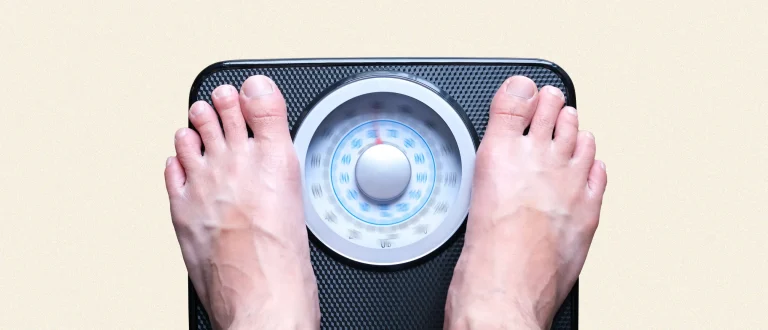30-Second Takeaway
- Low testosterone can cause anxiety, depression, irritability, and other mood shifts.
- The link between testosterone, anxiety and depression isn’t fully understood, but testosterone may cross into the brain where it may affect the production of brain cells, create new neural connections, and regulate feel-good neurotransmitters.
- If your anxiety or depression is caused by low testosterone, testosterone replacement therapy may provide relief.
Anxiety and depression are often pegged as women’s disorders. And while it’s true that women are twice as likely as men to have depression and anxiety disorders, plenty of guys suffer too. And the cause might be something unexpected: testosterone.
Stigma prevents many men from discussing anxiety and depression, says urologist and men’s health expert Joshua Calvert, M.D. “Research shows that it’s considered ‘unmanly’ to discuss mental health disorders, which may explain this disparity,” he notes.
Can Low Testosterone Cause Anxiety and Depression?
When your mood is in the basement, sometimes you can pinpoint the curveball that’s got you down. But what if you haven’t been laid off, had a health setback, or experienced some other negative event? The cause of those anxious or depressed feelings could be more surprising: low testosterone.
Every man’s testosterone levels decrease starting in his mid-30s, but some men experience a sharper dip, and end up with levels that are lower than normal for their age. Men with clinically low testosterone levels can experience a range of symptoms, including weight gain, a loss of libido, erectile dysfunction, and more. But many men don’t know that low T can also affect your mood, making you irritable, anxious, or prone to mood swings.
Knowing if changes in your mood are related to low T can be tricky. Feeling moody, irritable, and like you’re struggling to get through the day—some of the hallmark signs of anxiety and depression—are also common symptoms of low testosterone.
But anxiety and depression can also occur independently of low T. Here’s what you need to know about the connection, and how to figure out if your hormones are contributing to your depression or anxiety.
Shared Symptoms of Low Testosterone, Anxiety, and Depression
Low testosterone and mood disorders like anxiety and depression share a significant number of symptoms:
- Low sex drive
- Erectile dysfunction
- Insomnia and fatigue
- Trouble concentrating
- Problems with memory
- Irritability
- Sadness
- Loss of interest in activities you once enjoyed
- Withdrawing from friends and family
- Overall decreased sense of well-being
The kind of gradual mood changes that are associated with low T can be easy to brush off as signs of day-to-day stress. But feelings of anxiety and depression can be a sign that you should have your hormone levels tested.
Low Testosterone Can Cause Depression
Around 5.5 percent of US men have depression, which can make it difficult to function at work and home and stay socially connected, according to the Centers for Disease Control and Prevention. The biggest culprits are genetics, illness, and experiencing a traumatic life event. But mood changes can also be linked to low T.
Past research indicates that men with low testosterone levels had an increased risk of depression compared to men with normalized hormones. In one study (1), 21.7 percent of men with hypogonadism were diagnosed with depression versus 7.1 percent in the control group.
Another study (2) found that men who had depression also had lower average free testosterone levels compared to a control group. More recent research (3) found that older men with major depressive disorder had lower testosterone compared to healthy guys. That said, not every study finds (4) a connection.
If you are experiencing anger, changes in appetite, headaches, and digestive woes, or are reaching for alcohol to cope with stress—all symptoms of depression—you may want to consider getting tested for low T, especially if you can’t otherwise understand the reason behind these mood changes.
Low Testosterone Can Play a Role in Anxiety
If you’re constantly on edge, fatigued, are struggling to focus, and feeling like you’re in a perpetual worry cycle, you may have anxiety, which affects 40 million adults in the U.S., according to the Anxiety & Depression Association of America. A host of factors—from thyroid conditions to caffeine use —can contribute to anxious feelings, but so can low testosterone.
Though not as well-established as depression, research suggests that low T may also play a role (5) in your ability to cope with stress, and anxiety is a frequently reported symptom by men. Experts don’t completely understand the connection between testosterone levels and mood but they have a few theories (6): Testosterone crosses into the brain where it may affect the production of brain cells, create new neural connections that tweak thoughts toward the positive (7), and regulate feel-good neurotransmitters.
Low T may also be linked to anxiety in non-biological ways. For example, weight gain from low testosterone levels might dampen your self-confidence and make you feel anxious about your body. Erectile dysfunction and low libido can make you worry about your sexual performance.
How Do I Know If I Have Low Testosterone?
In addition to the symptoms listed above, such as low sex drive and ED, other symptoms of low T include loss of muscle and strength, increased body fat, a loss of body hair, breast development, and infertility.
The best way to know if your T levels are in the normal range is to have them tested, which is done via a simple blood test, like the at-home test offered by Hone.
Testosterone Replacement Therapy May Help Reduce Anxiety and Depression
Since symptoms of low T and mood disorders are so similar, you might think that medications that treat anxiety and depression could help with low testosterone. But this isn’t the case. Antidepressants may lower testosterone levels (8), and can negatively impact libido.
If low T is the reason you’re feeling low, testosterone replacement therapy can relieve symptoms of depression, according to a 2019 review and meta-analysis of 27 randomized, placebo-controlled clinical trials in JAMA Psychiatry (9). The researchers found that testosterone replacement therapy significantly reduced depressive symptoms compared with those in the control group treated with a placebo, especially among middle-aged men with low testosterone.
The researchers noted that men on higher doses of testosterone had more improvements in mood than those on lower doses, and TRT may be more effective for those experiencing less severe depression. The research also found that it took about six weeks for men on TRT to feel their mood improve, so it may take a few weeks after starting TRT to feel better.
Other Best Practices to Manage Anxiety and Depression
Whether or not you have low T, the following steps can also help improve your mood:
Spend time with friends and loved ones
If you feel okay doing so, you can also talk about how you feel. Strong connections buffer against feelings of isolation and improve wellbeing, shows research (10).
Exercise
Whether you like to lift, run, or hop on a bike, exercise has been found (11) to prevent mood disorders and can help manage symptoms. When you have one of those days when you feel as if there’s a dark cloud hovering overhead, you can get it out with a HIIT class, but something simple like getting out for a walk can help, too.
Maintain a daily sleep schedule
Both sleeping too short or too long may trigger (12) low feelings. Go to bed and wake up at consistent times every day and aim for at least seven hours of shut-eye each night.
Minimize alcohol
It’s no secret that alcohol use increased during the pandemic (13), especially for people with anxiety and depression. Finding new ways to cope with stress (exercise is one) or isolation (spending time with sober friends) can help you rely less on an after-work beer for a pick-me-up.
The Bottom Line
Low testosterone can cause anxiety and depression but testosterone replacement therapy can improve symptoms. If you think that you may have low testosterone, a test can confirm whether your levels are in the normal range for your age.
- Increased incidence of diagnosed depressive illness in hypogonadal older men.
- Calculated bioavailable testosterone levels and depression in middle-aged men.
- Plasma Testosterone and the Course of Major Depressive Disorder in Older Men and Women,
- The Effect of Testosterone Levels on Mood in Men: A Review
- Testosterone, mood, behaviour and quality of life.
- Plasma Testosterone and the Course of Major Depressive Disorder in Older Men and Women,
- Association of Testosterone Treatment With Alleviation of Depressive Symptoms in Men: A Systematic Review and Meta-analysis.
- Antidepressants’ effects on testosterone and estrogens: What do we know?
- Association of Testosterone Treatment With Alleviation of Depressive Symptoms in Men: A Systematic Review and Meta-analysis.
- The Connection Prescription: Using the Power of Social Interactions and the Deep Desire for Connectedness to Empower Health and Wellness.
- The Role of Exercise in Preventing and Treating Depression
- Sleep duration and depressive symptoms: a gene-environment interaction.
- Increased alcohol use during the COVID-19 pandemic: The effect of mental health and age in a cross-sectional sample of social media users in the U.S.








